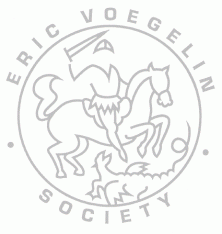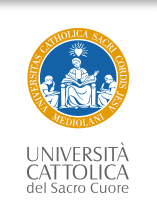Zahraniční instituty a spolky
Eric Voegelin Institute
The Eric Voegelin Institute (EVI) honors the scholarship and memory of Erich Hermann Wilhelm Voegelin, one of the greatest teachers in the history of Louisiana State University, a man widely recognized as one of the premier minds of the 20th century. Established in March 1987, EVI is a humanities and social sciences research institute devoted to the revitalization of teaching and understanding of the “great books” of Western civilization in comparison with other traditions. The institute’s principal activities involve seminars and conferences, research, publications, and teaching focused on the life and works of Voegelin and on the ideas and questions that animated his thought. Eric Voegelin came to America in the early 1940s as a refugee from Nazi Germany, having been fired as an associate professor at the University of Vienna in 1938 because of his resolute scholarly opposition to Adolf Hitler. During his LSU career between 1942 and 1958, Voegelin was named the university’s first Boyd Professor, the highest academic rank LSU can bestow. Voegelin dedicated his life to the study of widespread political violence and the devastation that results when totalitarian ideologies that closely resemble religions foster the notion that pursuing the creation of utopias on Earth is achievable and worth any cost, including death.
W: Home | Eric Voegelin Institute
Louisiana State University

ERIC VOEGELIN SOCIETY
The Eric Voegelin Society (EVS) honors the scholarship and memory of Erich Hermann Wilhelm Voegelin, widely recognized as one of the premier minds of the 20th century. Established as a non-profit organization in May 2012, EVS is a educational organization devoted to the revitalization of teaching and understanding of Eric Voegelin’s work and fundamental expressions of human civilization in art, literature, science, and politics. The Society’s principal activities involve seminars and conferences, research, publications and teaching focused on the life and works of Voegelin, who came to America in the early 1940s as a refugee from Nazi Germany where he was fired as an associate professor at the University of Vienna in 1938 because of his resolute scholarly opposition to Adolf Hitler. During his LSU career between 1942 and 1958, Voegelin was named the university’s first Boyd Professor, the highest academic rank LSU can bestow. Voegelin dedicated his life to the study of widespread political violence and the devastation that results when totalitarian ideologies that closely resemble religions foster the notion that pursuing the creation of utopias on Earth is achievable and worth any cost, including death.

University of Missouri Press
Homepage - University of Missouri Press
The Collected Works of Eric Voegelin
The University of Chicago

The University of Chicago Press

Stanford University

Založen v roce 1919. Rozsáhlý archiv obsahuje články Erica Voegelina, biografické dokumenty, korespondenci, přednášky, učební materiály a další práce.
Centre of Eric Voegelin Studies


Ghent University EHOC
ERIC VOEGELIN ARCHIV


W: http://voegelin-archiv.userweb.mwn.de/
Eric Voegelin Gesellschaft
Die Eric-Voegelin-Gesellschaft versteht es als ihre zentrale Aufgabe, die wissenschaftliche Auseinandersetzung mit dem Werk des deutschen Philosophen Eric Voegelin (1901–1985) zu fördern und dessen Denken einer größeren Leserschaft in Deutschland zugänglich zu machen. Die Gesellschaft ist aus dem Eric-Voegelin-Archiv e.V. hervorgegangen, der unter der Leitung von Prof. Dr. Peter J. Opitz über zwei Jahrzehnte sehr erfolgreich eben diese Ziele verfolgte. Eric Voegelin war ein ebenso interessanter wie umstrittener Philosoph. Im Mainstream der modernen politischen Theorie und Philosophie wie auch (und erst recht) der Politikwissenschaft ist Voegelins Denken nicht nur schwer zu verorten, sondern auch schwer mit den dort vorherrschenden Paradigmen kompatibel. Insofern auch mag man Voegelin einen „Unzeitgemäßen“ nennen. Dass aber gerade darin der inspirierende Kern seines Denkens liegt, ist die Überzeugung derer, die sich im Rahmen des Vereins mit Voegelin beschäftigen. Diese wissenschaftliche Auseinandersetzung kritisch und undogmatisch zu betreiben, ist dabei selbstverständliche Voraussetzung. In diesem Geiste versteht die Gesellschaft ihre Arbeit als Gesprächsangebot an alle, die sich intensiver mit Voegelin beschäftigen bzw. dessen Denken überhaupt erst näher kennenlernen wollen. Gerade dem letztgenannten Ziel dienen die auf dieser Plattform verfügbaren Beiträge und Informationen. Die Eric-Voegelin-Gesellschaft freut sich über Anregungen, Kritik und Kooperationsangebote jeder Art!

E: vorstand@eric-voegelin-gesellschaft.de
W: http://eric-voegelin-gesellschaft.de/startseite.html
Institut für Politische Wissenschaft der Universität Erlangen-Nürnberg

The University of Manchester

W: http://www.humanities.manchester.ac.uk
University of Prince Edward Island


VoegelinView is an interdisciplinary and international website dedicated to academic public commentary on culture, education, literature, philosophy, politics, religion, and society as well as the thought of Eric Voegelin.
Publisher: The Eric Voegelin Society
Founder: Fritz Wagner
Eric Voegelin Biographical Sketch
A Biographical Sketch (1901-85)
Eric Voegelin’s work is variously described as a philosophy of politics, a philosophy of history, or a philosophy of consciousness, but he most often characterized his work as political science and himself as a political philosopher. Born in Cologne, Germany in 1901, some of his earliest childhood experiences, later recalled in 1943, became the basis of his philosophy of consciousness and are described in his book Anamnesis (from the Greek “remembrance).”
After emigrating to the United States in 1938, he devoted his life to understanding the spiritual disorders and political violence which began in the fifteenth century and reached their apogee in our own time. His own writings have drawn both accolades and criticism, as well as his original historical studies on such varied topics as Marx, the Mongols, and Machiavelli. His skill as a literary critic was remarkable whether interpreting Henry James or T.S. Eliot.
He did post-doctoral studies in the United States from 1924 to 1926 and in Paris after that, teaching political theory and sociology at the University of Vienna after his habilitation in 1928. He published two books analyzing racism in 1933 and this forced his flight from Austria following the Anschluss in 1938. After a brief stay in Switzerland, he arrived in the United States and taught at a series of universities before joining Louisiana State University’s Department of Government in 1942, becoming a U.S. citizen in 1944.
He remained in Baton Rouge at LSU until 1958 when he accepted the Max Weber chair in political science at Munich’s Ludwig Maximilians Universität. The chair had been vacant since Weber’s death in 1920. While in Munich he founded the Institut für Politische Wissenschaft. Voegelin returned to America in 1969 to join Stanford University as well as the Hoover Institution on War, Revolution and Peace. After retirement from the university he continued his work to the very day of his death on January 19, 1985.
Publications
Voegelin published many books and scores of essays and reviews in his lifetime. He also left a number of manuscripts unpublished, including the massive History of Political Ideas that has since his death been published in eight volumes. His 1951 Charles R. Walgreen lectures at the University of Chicago, Truth and Representation, were published in 1952 under the title The New Science of Politics. Often seen as seminal in relationship to his later work, this small book made him famous, even earning a cover story in Time Magazine.
His magnum opus is the five volume Order and History, the last volume of which he was working on when he died. Order and History was originally conceived as an attempt to discern meaning in history through an examination of the history of order, an examination made possible by the burgeoning of non-ideological historiography. Voegelin undertook this task after he decided his previous large undertaking—the History of Political Ideas (existing then only as a manuscript)—was miscast by focusing on ideas rather than on experiences. Like all his writings, it was undertaken in response to his experience of the ruinous and often murderous disorders of our time.
The first volume, Israel and Revelation , was produced largely on the occasion of writing Order and History. The World of the Polis and Plato and Aristotle, drew much of their material from the manuscript of the History of Political Ideas. All three appeared between 1956 and 1957 and focused on the evocations of order in the ancient societies of the Near East and Greece—particularly the “pneumatic” in revelation and the “noetic” in philosophy. These three volumes were part of a larger project of tracing order and history throughout western civilization.
This effort took much longer than originally planned because Voegelin came to understand that a linear conception of history was inadequate to account for equivalent spiritual outbursts in parallel civilizations. He believed he had to broaden his horizon by familiarizing himself with different civilizations. He also had duties at the new institute. Thus seventeen years passed before Volume 4, The Ecumenic Age, appeared in 1974.
Midway through these years of late development, in 1966, Voegelin published his philosophy of consciousness under the title of Anamnesis: Zur Theorie der Geschichte und Politik, which many consider central to understanding his profound work.
The Ecumenic Age broke with the chronological pattern of the previous volumes by investigating symbolizations of order ranging in time from the Sumerian King List to Hegel. Voegelin was working on the final volume, In Search of Order, when he died. It was posthumously published in 1987.Among his special studies is the popular and accessible Hitler and the Germans, based on his 1964 Munich lectures, and his brief summary of modern spiritual disorder entitled Science, Politics and Gnosticism. Also very accessible is his series Conversations with Eric Voegelin, preserved from colloquies at the Thomas More Institute in Montreal over a 30 year period. The first of these four colloquies was published in Published Essays: 1953-1965 and the other three in The Drama of Humanity and Other Miscellaneous Papers: 1939-1985 of the Collected Works of Eric Voegelin. For a number of years the popular Autobiographical Reflections, a recorded and transcribed interview conducted over a period of time, has been available as a lively introduction to his person and thought.
Reading Voegelin
Voegelin’s work is difficult to characterize in terms circulating among contemporary university philosophy departments. His philosophical work shares some of the same interests found in Cassirer, Whitehead, Husserl, Heidegger, Gadamer, or Lonergan, and he shares interests with historians such as Eduard Meyer, Mircea Eliade, and Arnold Toynbee, yet Voegelin seems to command more material than any one of them while propounding a realism rejected by several of them, a realism based on the “realissimum,” the “intuition of Being,” the “Divine Ground” of Plato, Aristotle, Augustine, and Thomas Aquinas.
Mastering Voegelin’s thought can be difficult. He is erudite and assumes the reader is more or less familiar with the material, or at least has a grasp of history, philosophy, theology, psychology, and sociology. A reading knowledge of Latin, Greek, and modern European languages helps. One can only read Voegelin with understanding if one reads more than a few others as well. Moreover, Voegelin often felt compelled to introduce new technical terms or employ old terms in new ways. A further difficulty stems from the restorative nature of his work which requires the conventionally schooled student to approach his topics in a fresh way—especially difficult for that poorly nourished individual deprived of a religious foundation.
These difficulties have led to superficial readings. Voegelin’s work is rejected out of hand by most secularists and liberals. Forty years ago his work was adopted simplistically by communist-era conservatives. And he is not embraced as one of their own by historians or theologians or political scientists or philosophers because they cannot encompass him within their specialized fields. He remains an outsider—much like anyone who has developed his reflective consciousness in openness to the Divine Ground.
Secondary literature on Voegelin has virtually become an industry. Among the indications of the engagement with Voegelin’s work are the 305 page Eric Voegelin: International Bibliography 1921-2000. Voegelin research centers have been founded in universities in the United States and Europe. His works have been translated into languages ranging from Portuguese to Japanese and a Chinese edition of Order and History has recently been published. The 34 volumes Collected Works of Eric Voegelin as well as numerous secondary works by contemporary scholars published by The University of Missouri Press, St. Augustine’s Press, and the Eric-Voegelin-Archiv of the Ludwig-Maximilians-Universität.
Asociația Culturală Eric Voegelin

Polis e Filosofia in Eric Voegelin
Instituto Eric Voegelin Brasil
INTRODUÇÃO À FILOSOFIA

Kontakt: Olavo de Carvalho
Bem-vindo ao Instituto Eric Voegelin - YouTube









